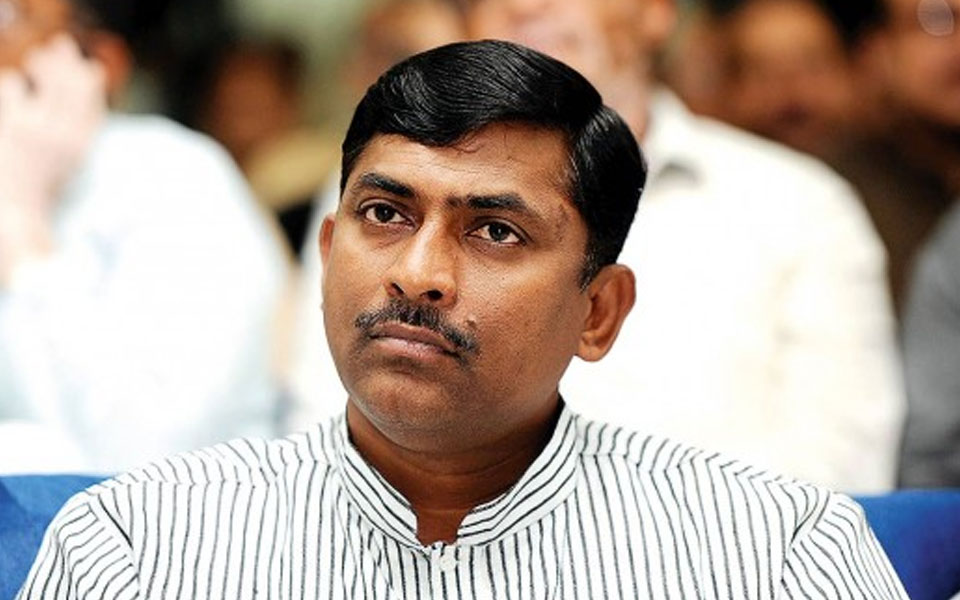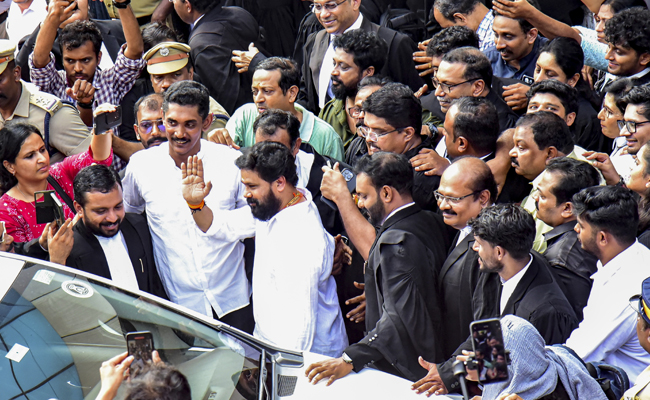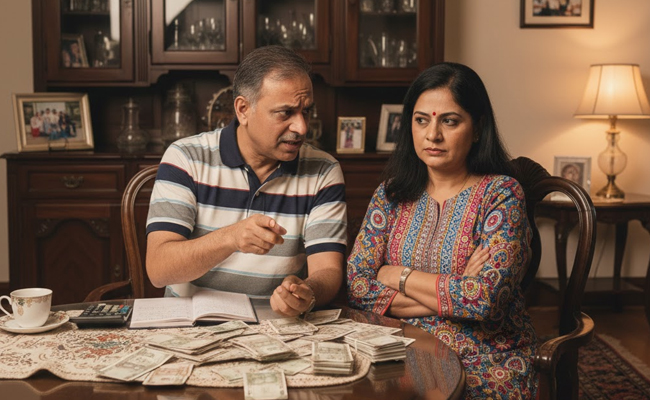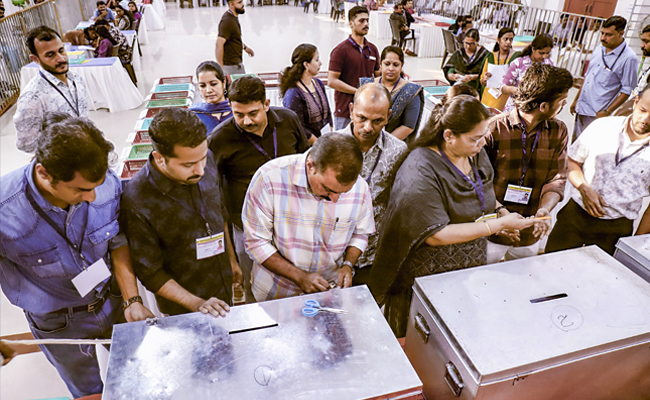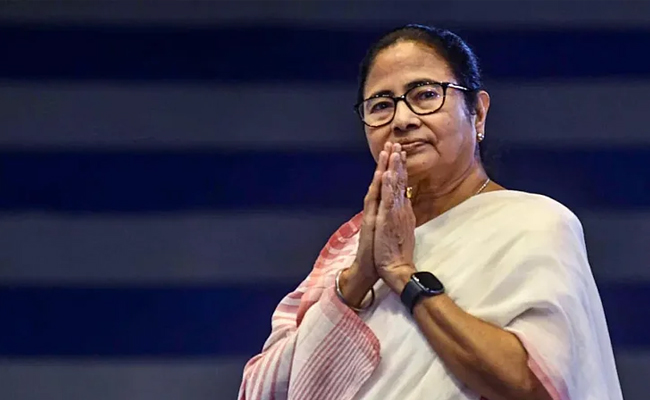Hyderabad: An FIR was filed against BJP national general secretary P Muralidhar Rao and eight others for allegedly cheating a man here of Rs 2.17 crore by promising him a nominated post in the central government, police said Wednesday.
However, Muralidhar Rao refuted the allegations and said he has nothing to do with the case.
Based on a court-referred complaint lodged by the man's wife, a case was registered Tuesday against Muralidhar Rao and eight others on charges of cheating, forgery, criminal intimidation and other relevant IPC sections, they said.
The complainant alleged that she and her husband were induced by Muralidhar Rao and others by showing a purported letter with forged signature of Union minister Nirmala Sitharaman.
She alleged they took Rs 2.17 crore after promising that her husband would be appointed chairperson of Pharma Exil, police said.
Denying the allegations, Muralidhar Rao in a series of tweets said, "Regarding the FIR filed - have nothing to do with the present dispute. The FIR involving me reportedly is sequel to a private complaint in a court by those who actually are facing criminal charges in the same matter."
"The timing of the private complaint which has no base is mischievous to say the least. Hope police will act quickly to nail the lies. My lawyers will initiate appropriate steps to bring the culprits to justice," he said in another tweet.
In November 2015, Eswar Reddy, who claimed to be closely associated with prominent personalities in the BJP, approached the woman and her husband.
Eswar Reddy had said he knew one A Krishna Kishore, the "shadow" of Muralidhar Rao, who was capable of getting a nominated post in any department of the central government, the woman said in her complaint.
The complainant said she and her husband were reluctant to acquire the post by spending a huge amount.
"Later, Eswar Reddy and others again approached us and put pressure on us to accept their proposal by making false promises that they would be able to procure a nominated membership of Pharma Exil which functions under the control of Ministry of Commerce and Industries, Government of India," the complainant alleged.
She also alleged that Eswar Reddy and others with the active connivance of Muralidhar Rao showed a photocopy of an appointment letter of her husband as chairperson of Pharma Exil, which was purportedly signed by Nirmala Sitharaman, and took Rs 2.17 crore for the post.
When the complainant and her husband approached Eswar Reddy and others over the appointment they dragged the matter and when they sought return of the money there was no response, police said based on the complaint.
The woman alleged that Muralidhar Rao also started to threaten them.
Reacting to the FIR, BJP Telangana chief spokesperson Krishna Saagar Rao in a statement said, "The frivolous FIR filed against our National General Secretary Muralidhar Rao by few detractors is with a clear motive to tarnish his image and the party's."
Muralidhar Rao's lawyers will take appropriate legal action, he said, adding that "we are very certain that our leader has done no wrong".
The BJP also warned of dire legal consequences if anyone conspired against the party.
Let the Truth be known. If you read VB and like VB, please be a VB Supporter and Help us deliver the Truth to one and all.
Kochi (PTI): The prosecution had "miserably" failed to prove the conspiracy charge against Dileep in the sensational 2017 actress sexual assault case, a local court has observed while citing inconsistencies and lack of sufficient evidence against the Malayalam star.
The full judgement of Ernakulam District and Principal Sessions Court Judge Honey M Varghese was released late on Friday, and has revealed the judge also pointing out at unsustainable arguments put forth by the prosecution.
"The prosecution miserably failed to prove the conspiracy between accused No.1 (Pulsar Suni) and accused No.8 (Dileep) in executing the offence against the victim," the court held.
It examined in detail, the prosecution's allegation that Dileep had hired the prime accused to sexually assault the survivor and record visuals, including close-up footage of a gold ring she was wearing, to establish her identity.
On page 1130 of the judgment, under paragraph 703, the court framed the issue as whether the prosecution's contention that NS Sunil (Pulsar Suni) recorded visuals of the gold ring worn by the victim at the time of the occurrence, so as to clearly disclose her identity, was sustainable.
The prosecution contended Dileep and Suni had planned the recording so that the actress' identity would be unmistakable, with the video of the gold ring intended to convince Dileep that the visuals were genuine.
However, the court noted that this contention was not stated in the first charge sheet and was introduced only in the second one.
As part of this claim, a gold ring was seized after the victim produced it before the police.
The court observed that multiple statements of the victim were recorded from February 18, 2017, following the incident, and that she first raised allegations against Dileep only on June 3, 2017.
Even on that day, nothing was mentioned about filming of the ring as claimed by the prosecution, the court said.
The prosecution failed to explain why the victim did not disclose this fact at the earliest available opportunities.
It further noted that although the victim had viewed the sexual assault visuals twice, she did not mention any specific recording of the gold ring on those occasions, which remained unexplained.
The court also examined the approvers' statements.
One approver told the magistrate that Dileep had instructed Pulsar Suni to record the victim's wedding ring.
The court observed that no such wedding ring was available with her at that time.
During the trial, the approver changed his version, the court said.
The Special Public Prosecutor put a leading question to the approver on whether Dileep had instructed the recording of the ring, after which he deposed that the instruction was to record it to prove the victim's identity.
The court observed that the approver changed his account to corroborate the victim's evidence.
When the same question was put to another approver, he repeated the claim during the trial but admitted he had never stated this fact before the investigating officer.
The court noted that the second approver even went to the extent of claiming Dileep had instructed the execution of the crime as the victim's engagement was over.
This showed that the evidence of the second approver regarding the shooting of the ring was untrue, as her engagement had taken place after the crime.
The court further observed that the visuals themselves clearly revealed the victim's identity and that there was no need to capture images of the ring to establish identity.
In paragraph 887, the court examined the alleged motive behind the crime and noted that in the first charge sheet, the prosecution had claimed that accused persons 1 to 6 had kidnapped the victim with the common intention of capturing nude visuals to extort money by threatening to circulate them and there was no mention about Dileep's role in it.
The court also rejected the prosecution's claim that the accused had been planning the assault on Dileep's instructions since 2013, noting that the allegation was not supported by reliable evidence.
It similarly ruled out the claim that Suni attempted to sexually assault the victim in Goa in January 2017, stating that witness statements showed no such misconduct when he served as the driver of the vehicle used by the actress there.
The court also discussed various controversies that followed Dileep's arrest and the evidence relied upon by the prosecution, ultimately finding that the case had not been proved.
Pronouning its verdict on the sensational case on December 8, the court acquitted Dileep and three others.
Later, the court sentenced six accused, including the prime accused Suni, to 20 years' rigorous imprisonment.
The assault on the multilingual actress, after the accused allegedly forced their way into her car and held it under their control for two hours on February 17, 2017, had shocked Kerala.
Pulsar Suni sexually assaulted the actress and video recorded the act with the help of the other convicted persons in the moving car.

